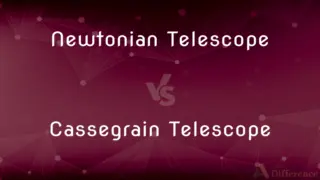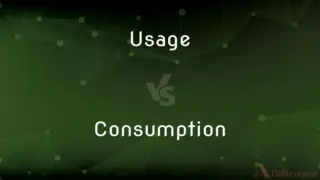Methodical vs. Logical — What's the Difference?
By Maham Liaqat & Fiza Rafique — Updated on May 6, 2024
Methodical involves a systematic, orderly approach to tasks, focusing on step-by-step procedures; logical refers to clear, rational thinking based on reasoning.

Difference Between Methodical and Logical
Table of Contents
ADVERTISEMENT
Key Differences
Methodical approaches emphasize structured, often detailed sequences in processes, ensuring each step is followed precisely. On the other hand, logical thinking prioritizes coherence and adherence to rules of reasoning, often independent of a specific sequence.
Methodical work is often seen in environments where procedure and accuracy are paramount, such as in scientific experiments. Whereas logical reasoning is crucial in fields like mathematics and philosophy, where arguments must be consistent and valid.
Being methodical can sometimes involve repetitive processes to achieve precision. Conversely, being logical might involve varied strategies to solve a problem, as long as the solutions are reasonable and sound.
In problem-solving, a methodical person might adhere to a tried-and-true formula. On the other hand, a logical person evaluates the situation based on facts and available data to formulate a solution.
When learning new information, methodical learners prefer structured formats and consistency. In contrast, logical learners might look for relationships and underlying principles that govern the information.
ADVERTISEMENT
Comparison Chart
Definition
Following a systematic, orderly approach
Based on clear, rational thinking
Focus
Procedure and sequence
Reasoning and consistency
Common Applications
Scientific research, data entry
Problem-solving, philosophical debates
Approach to Problems
Sequential steps
Evaluating information and relationships
Learning Style
Prefers structured learning environments
Seeks understanding of principles
Compare with Definitions
Methodical
Following a fixed, orderly procedure.
His methodical nature made him an excellent auditor.
Logical
In a logical way.
The debate team logically dismantled their opponent's arguments.
Methodical
Characterized by method and precision.
The scientist's methodical observations led to a significant discovery.
Logical
Involving clear and coherent reasoning.
The teacher explained the problem in a logical manner that was easy to follow.
Methodical
Involving or arranged in a sequence.
The assembly line was designed to be methodical and efficient.
Logical
The quality of being logical.
The logicality of his thesis was impressive.
Methodical
Organized in a systematic way.
She approached her research in a methodical manner, ensuring no detail was overlooked.
Logical
Pertaining to the rules of logic.
Her argument was logical and well-constructed.
Methodical
Methodically: In a methodical way.
He methodically organized the files, making them easy to access.
Logical
Reasonable; making use of clear reasoning.
He made a logical decision based on the facts presented.
Methodical
Arranged or proceeding in regular, systematic order
Methodical instructions for assembly.
Logical
Of, relating to, in accordance with, or of the nature of logic
Logical disputation.
Methodical
Orderly and systematic in habits or behavior
A methodical and painstaking researcher.
Logical
Based on earlier or otherwise known statements, events, or conditions; reasonable
Rain was a logical expectation, given the time of year.
Methodical
In an organized manner; proceeding with regard to method; systematic.
Logical
Reasoning or capable of reasoning in a clear and consistent manner
A very logical person.
Methodical
Arranged with regard to method; disposed in a suitable manner, or in a manner to illustrate a subject, or to facilitate practical observation.
The methodical arrangement of arguments; a methodical treatise
Logical
(not comparable) In agreement with the principles of logic.
Methodical
Characterized by method and orderliness;
A methodical scholar
Logical
Reasonable.
Logical
(not comparable) Of or pertaining to logic.
It's not logical, it's God!
Logical
(computing) Relating to the conceptual model of a system rather than its physical expression
Logical memory appears contiguous to an application program, but may well be stored on several physical devices, including in RAM and on hard-disks, as determined by the operating system.
Logical
Of or pertaining to logic; used in logic; as, logical subtilties.
Logical
According to the rules of logic; as, a logical argument or inference; the reasoning is logical; a logical argument; a logical impossibility.
Logical
Skilled in logic; versed in the art of thinking and reasoning; as, he is a logical thinker.
Logical
Capable of or reflecting the capability for correct and valid reasoning;
A logical mind
Logical
In accordance with reason or logic;
A logical conclusion
Logical
Marked by an orderly, logical, and aesthetically consistent relation of parts;
A logical argument
The orderly presentation
Logical
Based on known statements or events or conditions;
Rain was a logical expectation, given the time of year
Logical
Capable of thinking and expressing yourself in a clear and consistent manner;
A lucid thinker
She was more coherent than she had been just after the accident
Common Curiosities
Can someone be methodical but not logical?
Yes, a person can follow a methodical procedure without necessarily engaging in logical reasoning, especially if the procedure doesn't require problem-solving.
What are the benefits of a methodical approach?
A methodical approach ensures consistency, accuracy, and thoroughness in tasks.
What does it mean to be methodical?
Being methodical means being systematic and orderly in one's approach to tasks.
How does logical thinking differ from being logical?
Logical thinking refers specifically to the mental process of reasoning, while being logical describes someone or something that operates according to these processes.
Is methodical thinking important in science?
Yes, scientific research often requires a methodical approach to conduct experiments systematically and collect data accurately.
Can a methodical approach improve learning?
Yes, methodical approaches can enhance learning by providing a structured way to absorb and organize information.
What role does logical thinking play in philosophy?
Logical thinking is central to philosophy, where arguments must be constructed and analyzed based on sound reasoning.
How does logical reasoning benefit decision-making?
Logical reasoning helps in making decisions that are coherent, rational, and justified, reducing the influence of biases or emotions.
How do logical and methodical approaches apply to problem-solving?
Methodical approaches solve problems through sequential steps, while logical approaches solve them by assessing information and relationships.
What are the drawbacks of being too methodical?
Being overly methodical can sometimes limit flexibility and creativity, making it hard to adapt to new or unexpected situations.
Share Your Discovery

Previous Comparison
Battalion vs. Brigade
Next Comparison
Explication vs. ExplanationAuthor Spotlight
Written by
Maham LiaqatCo-written by
Fiza RafiqueFiza Rafique is a skilled content writer at AskDifference.com, where she meticulously refines and enhances written pieces. Drawing from her vast editorial expertise, Fiza ensures clarity, accuracy, and precision in every article. Passionate about language, she continually seeks to elevate the quality of content for readers worldwide.















































